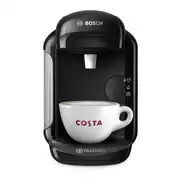 OK 3rd problem class one appliance with no exposed metal work to connect test lead too how can I carry out the earth bond test given it is a class 1 appliance and not a class 2 appliance like this
OK 3rd problem class one appliance with no exposed metal work to connect test lead too how can I carry out the earth bond test given it is a class 1 appliance and not a class 2 appliance like this 
 OK 3rd problem class one appliance with no exposed metal work to connect test lead too how can I carry out the earth bond test given it is a class 1 appliance and not a class 2 appliance like this
OK 3rd problem class one appliance with no exposed metal work to connect test lead too how can I carry out the earth bond test given it is a class 1 appliance and not a class 2 appliance like this 
gkenyon:
Get it tested by someone who knows about that type of appliance.
Just a note of caution too ... relates to ALL appliance testing, as well as that for charity shops.
Many appliances contain safety measures other than electrical, such as mechanical (including rotating parts, abrasion, shearing, etc), radiation, fire/heat safety, etc.
"Go/No-Go" electrical tests alone are unsuitable for determining the fitness for sale, or "safe to use".
Sometimes, particular knowledge of an appliance, and particularly hazards covered in the user and installation instructions, is absolutely necessary.
The legislation for workplaces, requires suitable maintenance to ensure safety - not just electrical.
Appliances that are serviced regularly for mechanical reasons should be checked for electrical safety by the service organisation (HSE guidance recommends this for the safety of the person carrying out mechanical maintenance and servicing).
gkenyon:
Get it tested by someone who knows about that type of appliance.
Just a note of caution too ... relates to ALL appliance testing, as well as that for charity shops.
Many appliances contain safety measures other than electrical, such as mechanical (including rotating parts, abrasion, shearing, etc), radiation, fire/heat safety, etc.
"Go/No-Go" electrical tests alone are unsuitable for determining the fitness for sale, or "safe to use".
Sometimes, particular knowledge of an appliance, and particularly hazards covered in the user and installation instructions, is absolutely necessary.
The legislation for workplaces, requires suitable maintenance to ensure safety - not just electrical.
Appliances that are serviced regularly for mechanical reasons should be checked for electrical safety by the service organisation (HSE guidance recommends this for the safety of the person carrying out mechanical maintenance and servicing).
We're about to take you to the IET registration website. Don't worry though, you'll be sent straight back to the community after completing the registration.
Continue to the IET registration site